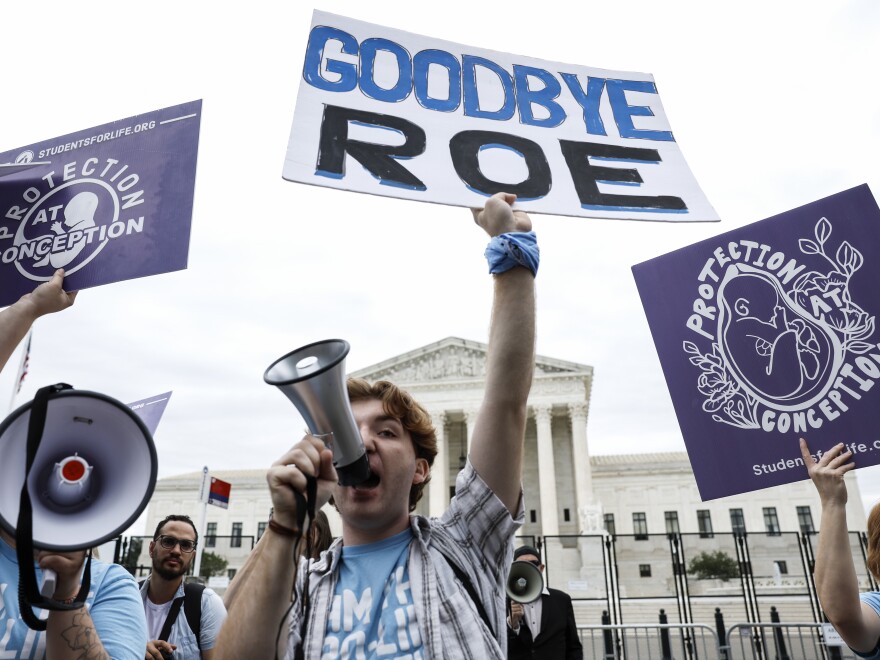Updated June 24, 2022 at 4:27 PM ET
Nearly 1 in 4 women in the U.S. are expected to get an abortion at some point in their lives, according to a 2017 study.
The opinion by the Supreme Court on Friday that overturns Roe v. Wade will have a major impact in states across the country that have already signaled their intention to restrict or ban abortion. A leaked draft opinion from the U.S. Supreme Court in May on case Dobbs v. Jackson Women's Health Organization suggested this decision might happen.
According to the Guttmacher Institute, a research group that supports abortion rights, 58% of U.S. women of reproductive age — or 40 million — live in states that are "hostile" to abortion.
The opinion overturning Roe does not ban abortion nationwide but instead allows states to drastically restrict or even ban abortion, which advocates for reproductive rights say could have seismic consequences for the country.
Here's what a future without Roe v. Wade means:
Ahead of the decision to overturn Roe, more than 20 states had laws meant to restrict or ban abortion soon after the Supreme Court ruling, according to Guttmacher. One type of statute, called a "trigger law," is designed to take effect after a Supreme Court ruling. Abortion bans in Kentucky, Louisiana and South Dakota went into effect immediately after the ruling, while bans in Idaho, Tennessee and Texas won't take effect for another 30 days. Seven other states have trigger laws that require an additional step from a state official. Additionally, some states still have pre-Roe abortion bans on the books that haven't been enforced. Other laws express the intent of states to crack down on abortion if permitted by the Supreme Court.
States that continue to allow abortion will likely see an influx of patients seeking care. For example, after Texas enacted its roughly six-week ban on abortion last year, some residents began to get abortions out of state. In the final four months of last year, Planned Parenthood clinics in states near Texas reported a nearly 800% increase in abortion patients from Texas compared to the same period in the prior year.
Women of color will bear the brunt of further abortion restrictions. According to The Associated Press, Black and Hispanic women get abortions at higher rates than their peers in conservative states. Women of color could have a harder time traveling out of state for an abortion due to financial constraints, the AP said.
Limits on abortion access can lead to negative long-term health effects. A major study from the University of California, San Francisco found that women are harmed by being denied abortions. The women surveyed who gave birth had economic hardships that lasted for several years, were more likely to raise the child alone, and were at higher risk of developing serious health problems than those who had had abortions.
Some blue states are already taking steps to enshrine the right to abortion in state law. From Colorado to New Jersey, Democratic governors have signed laws protecting reproductive rights and announced their intention to be able to provide abortion services to people who live in states where the procedure is restricted.
Copyright 2022 NPR. To see more, visit https://www.npr.org.



